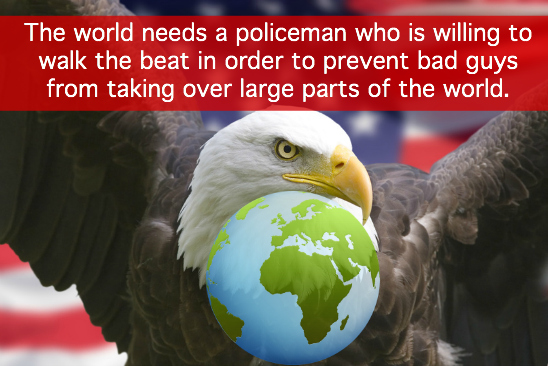Should America be the world’s policeman? That was a question I asked my radio audience when I had Pulitzer Prize winning columnist Bret Stephens on to talk about his book, America In Retreat. His argument is that world situations are aflame because America has decided to retreat from a role it inherited after World War II. We currently have a foreign policy that is heavy on rhetoric and light on action.
A key part of his argument can be seen in what is often called the “broken window theory.” In the late 1960s, Philip Zimbardo parked a car on a street in the Bronx, with the hood up and without license plates. Within minutes, vandals began to strip the car of anything valuable. By the next day, people were destroying the car, ripping up upholstery and smashing windows.
He conducted the same experiment in Palo Alto, near the Stanford University campus. This time the car (with hood up and license plates removed) sat untouched for days. Then Dr. Zimbardo smashed a window. That changed everything. With a few hours, the car was destroyed.
This study shows that social disorder and crime are linked. The same principle applies to what is happening in the world. If the world is in disorder and the world’s policeman does nothing, it emboldens others. A Syrian dictator murders thousands. America does nothing. The Russian president seizes Crimea. The radical Muslim group ISIS begins taking land in Syria and Iraq. These are not unrelated actions. This is what happens in a broken-windows world.
Bret Stephens says that at the very least we should provide the military with what it needs to project force and once again become a deterrent. Increasing the military budget to previous levels (around 5 percent of GDP) would allow the Navy to build needed ships and the Air Force to replace a fleet of aircraft whose planes are the oldest in its history.
The world needs a policeman who is willing to walk the beat in order to prevent bad guys from taking over large parts of the world.
 Listen Online
Listen Online Watch Online
Watch Online Find a Station in Your Area
Find a Station in Your Area












 Listen Now
Listen Now Watch Online
Watch Online
